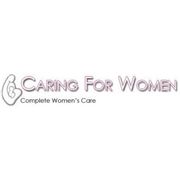OBGYN Shares 3 Birth Control Options & Their Effectiveness

No matter what age you are, finding the right birth control for your lifestyle can seem confusing. Visiting the gynecologist or local OBGYN can be daunting enough, but it doesn’t have to be. If you are searching for a comprehensive list of birth control methods and their effectiveness, look no further!
Most Common Birth Control Options and Effectiveness
Barrier Methods
This type of birth control is designed to block the sperm from reaching the egg. Spermicides, condoms, and sponges can all be purchased at local drugstores, but your gynecologist must prescribe a diaphragm or cervical cap.
Although these options do protect against sexually transmitted infections, they are not effective in preventing pregnancy. According to The American Congress of Obstetricians and Gynecologists, 18 to 28 women out of 100 become pregnant annually, even when using barrier methods of birth control.

Hormonal Birth Control
Progestin-only hormonal birth control methods include the pill and injection. In these cases, a form of progesterone, known as progestin, is a hormone that affects menstruation.
You can receive the pill or injection as a combined hormonal birth control as well. Instead of only containing progestin, the contraceptives also have a second hormone known as estrogen. The patch and vaginal ring are strictly combined hormonal birth control methods. The hormones stop ovulation, thicken the mucus in the cervix, and thin the uterus to prevent pregnancy.
The effectiveness among progestin-only and combined hormonal birth control remains the same for the pill, injection, patch, and ring. Typical use means the methods aren’t always used correctly, which equates to about nine out of 100 women getting pregnant, according to The American Congress of Obstetricians and Gynecologists.
3. Long-Acting Reversible Contraception (LARC)
The birth control implant and intrauterine device (IUD) are two kinds of long-acting reversible contraception. Progestin-only forms are available, and both instruments can be inserted during a routine trip to the OBGYN. In regards to women’s health, these are innovative birth control options. They last for three to 10 years (depending on the brand) but all of them can be removed at any time if you wish to try getting pregnant later in life.
Fewer than one in 100 women conceive a baby while using the implant or IUD. The American Congress of Obstetricians and Gynecologists calculates this is the most efficient form of birth control against pregnancy.
For over two decades, Caring For Women has proudly served the families of Anchorage and Wasilla, Alaska, with top-notch OBGYN services. Dr. Donna Chester, MD, FACOG, and Dr. Dolly Lefever, CNM, FNP, APRN will go above and beyond to help you live a healthy, happy life with your family. If you want to change your perspective of going to the gynecologist, learn more about the comprehensive women’s healthcare today.
About the Business
Have a question? Ask the experts!
Send your question

